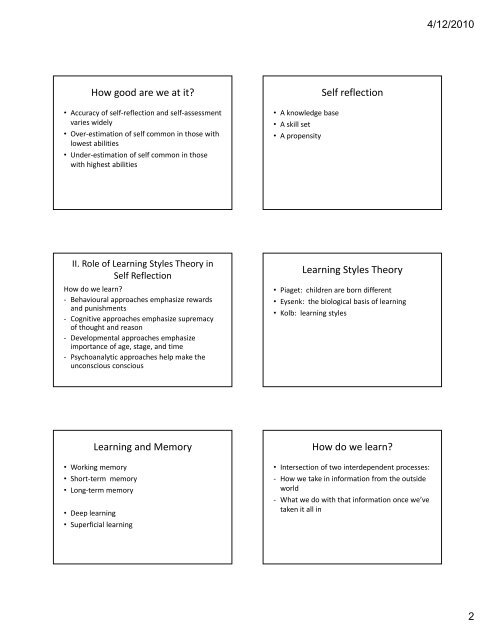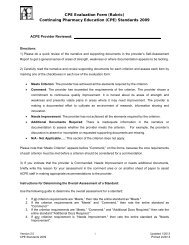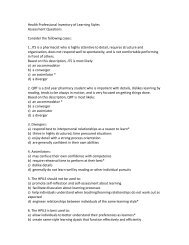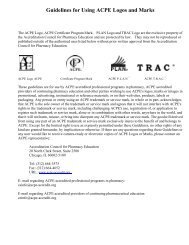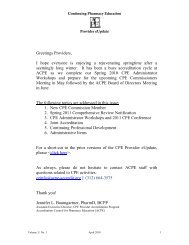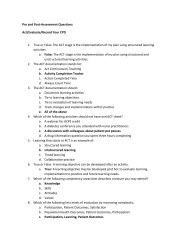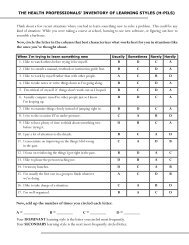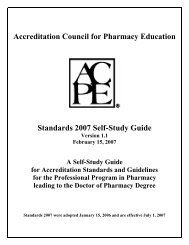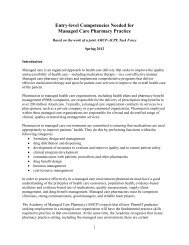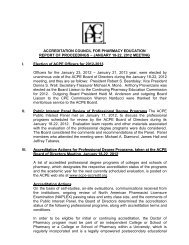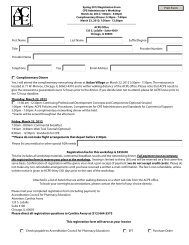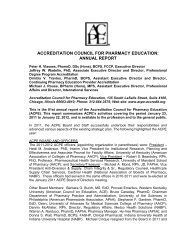Health Professionals' Inventory of Learning Styles (H-PILS) g y ...
Health Professionals' Inventory of Learning Styles (H-PILS) g y ...
Health Professionals' Inventory of Learning Styles (H-PILS) g y ...
- No tags were found...
Create successful ePaper yourself
Turn your PDF publications into a flip-book with our unique Google optimized e-Paper software.
4/12/2010How good are we at it?• Accuracy <strong>of</strong> self‐reflection and self‐assessmentvaries widely• Over‐estimation <strong>of</strong> self common in those withlowest abilities• Under‐estimation <strong>of</strong> self common in thosewith highest abilities• A knowledge base• A skill set• A propensitySelf reflectionII. Role <strong>of</strong> <strong>Learning</strong> <strong>Styles</strong> Theory inSelf ReflectionHow do we learn?‐ Behavioural approaches emphasize rewardsand punishments‐ Cognitive approaches emphasize supremacy<strong>of</strong> thought and reason‐ Developmental approaches emphasizeimportance <strong>of</strong> age, stage, and time‐ Psychoanalytic approaches help make theunconscious conscious<strong>Learning</strong> <strong>Styles</strong> Theory• Piaget: children are born different• Eysenk: the biological basis <strong>of</strong> learning• Kolb: learning styles<strong>Learning</strong> and Memory• Working memory• Short‐term memory• Long‐term memory• Deep learning• Superficial learningHow do we learn?• Intersection <strong>of</strong> two interdependent processes:‐ How we take in information from the outsideworld‐ What we do with ihthat information i once we’vetaken it all in2


